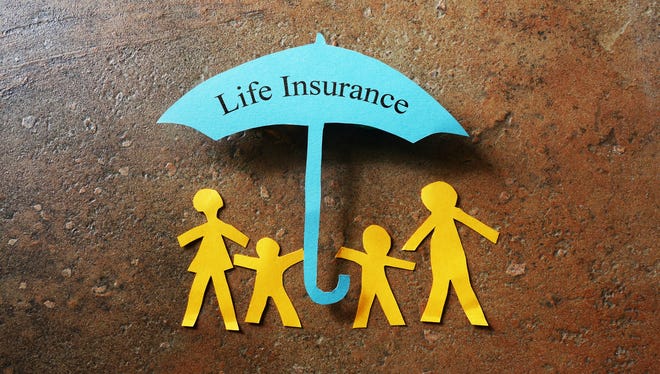When is the right time to buy life insurance?
Intellectually, almost everyone understands the value of life insurance. Simply put, a life insurance policy is a way to look out for loved ones in the event of your death.

But when is the right time – and the right way – to buy life insurance?
Three out of five Americans currently own some form of life insurance, according to a recent study by the insurance education group Life Happens. And while that sounds like a large number, the non-profit group’s leader points out that coverage rates can vary greatly by age groups based on “life cycle decisions.”
“When young Millenials get married and buy a home and incur a bunch of debt, then they start to look at that and say ‘I need to take care of that’ and start to consider life insurance,” said Marvin Feldman, president and CEO of Life Happens.
Of course, considering isn’t always buying, Feldman adds. Most 30-somethings don’t dwell too much on their mortality.
“When you and I were that age, we were thinking 'nothing is ever going to happen to us',” he said.
The great irony there is that when you feel great in your 30s, it’s the perfect time to buy life insurance.
10-word answers (or less!) to your biggest car insurance questions
“The younger you are, assuming you’re healthy, the less expensive it’s going to be,” Feldman said.
He also says it’s wise to buy insurance when you’re younger to “protect your insurability,” because older Americans in poor health may pay big premiums or even be denied coverage altogether because they are seen as too risky to insure. For instance, Feldman said it may be wise for 30-somethings to consider term life insurance that spans 15 or 20 years but is also structured as a “convertible” policy that can be made permanent without the added hassle of proving you’re in good health down the road.
While being proactive and buying a term policy when you’re younger can be cost-effective, there is also a growing group of wealthy Americans who are using life insurance vehicles as a kind of alternative investment strategy, said David Fabian, managing partner of FMD Capital Management in Irvine, Calif.
This is not your father's 401(k): The retirement product you should know about
There are “cash value” products with investment components that “work as an additional tax-deferred savings vehicle for high-income earners,” Fabian said. That’s because, like an IRA account, the money you contribute into the policy can grow tax-free via the investments you choose. And, with the right provider, you can invest with more flexibility and fewer restrictions than an IRA.
“Cash-value policies are often more expensive because they offer coverage for an extended period of time,” Fabian adds, but can be an effective way to grow your wealth and pass it on to future generations.
Because of the variety and complexity of policies, Feldman of Life Happens recommends getting personalized advice from a financial adviser or insurance agent to get a personalized fit for you and your family. And don’t put it off too long, he adds.
“It’s always interesting to have somebody you’ve worked with who calls after a few years and says, ‘Remember that insurance we discussed? I’d like to buy it.’ And you ask what’s changed and they say they’ve been diagnosed with cancer or just had a heart attack,” Feldman said. “Well, then it’s too late.”
Jeff Reeves is executive editor of InvestorPlace.com.